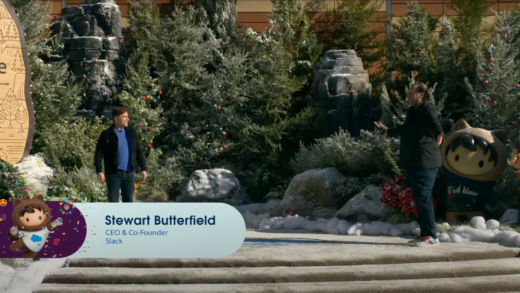On December 1, 2020, Salesforce announced the intention to acquire Slack for a combined cash and stock offering currently valued at $27.7B. While Salesforce CEO Marc Benioff’s description of the acquisition as “the most strategic combination in the history of software” might be somewhat dramatic, it is indeed an interesting strategic platform play.
Following the announcement, many members of the tech community have made comparisons to Microsoft. Some of these comparisons focus on Slack’s history of publicly going head-to-head with Microsoft Teams, as they did with their 2016 full page ad in the New York Times “welcoming” Microsoft to the enterprise chat market. Other comparisons center around Microsoft’s $26.2B acquisition of LinkedIn given it was an M&A bidding war that Salesforce lost. Both of these are valid frames in trying to understand how acquiring Slack impacts Salesforce competitively as a major enterprise software vendor. They may not, however, be the most interesting points of comparison in the Microsoft portfolio.
Slack began as a tool aimed at developers, but has very much become a general purpose business tool within corporations. Slack serves as a key path of communication and collaboration for teams. This high level of user engagement is valuable for partners and third parties hoping to meet users where they are. As such, Slack has become much more than a chat app, and in recent years has become a platform where a vast number of enterprise tools have integrated into the Slack ecosystem. There is power in commanding user attention.
In this light, the Slack acquisition is reminiscent of a different Microsoft deal: acquiring GitHub. This is not to say that GitHub and Slack should be conflated as tools. GitHub is firmly rooted in the developer space, whereas Slack serves a wide range of personas and is a much more general purpose business tool. But both tools demonstrate that part of an asset’s value lies not only in the software’s functionality but also in the value of capturing user attention and engagement. Usage is the killer application.
In 2018 Microsoft acquired GitHub for $7.5B. GitHub commands developer attention and is a center of much of the developer ecosystem. In acquiring GitHub, Microsoft purchased its way into the developer workflow and since then has steadily worked to expand GitHub’s importance in said workflow. GitHub’s pace of product development has accelerated significantly in the past two years, and the tool has evolved from a source code repository to a much more robust platform. With features like GitHub Actions, Microsoft increasingly has the ability to take code from a development environment all the way to production (conceivably on Microsoft’s cloud). This workflow is made possible because GitHub is a developer center of gravity.
If this pattern holds, then in acquiring Slack – a place where teams are already spending time – Salesforce has the potential to use this acquisition to insert themselves into people’s existing daily workflows. But to what end?
Salesforce’s core business is in the CRM space, but the company has a wider suite of tools within their platform than a casual observer may realize (e.g. a compute platform in Heroku, an API-driven integration solution with Mulesoft, a growing suite of developer tools with the Lightning platform, to name a few.) While some of these tools can be used as stand alone products, many of these products historically have been aligned around either expanding or defending Salesforce’s core CRM market.
Slack has the potential to expand the nature of Salesforce’s portfolio. Slack is where discussions about business functions happen – conversations ranging from product management, to engineering, to addressing customer pain points, to legal discussions, and so on. This will grow as Slack brings in more integrations. To use language popularized by Geoffrey Moore, Salesforce’s CRM was already the system of record while Slack is the system of engagement. This acquisition brings these systems together, and as such has the potential to be transformative.
At its base level Salesforce is buying a chat platform. More than that, Salesforce is buying themselves a place in existing user workflows and mindshare. But attention isn’t the ultimate end game. Acquiring Slack brings Salesforce ever further into the enterprise conversation, the place where value lies.

Disclosure: Salesforce, Microsoft, and GitHub are all RedMonk clients.
No Comments